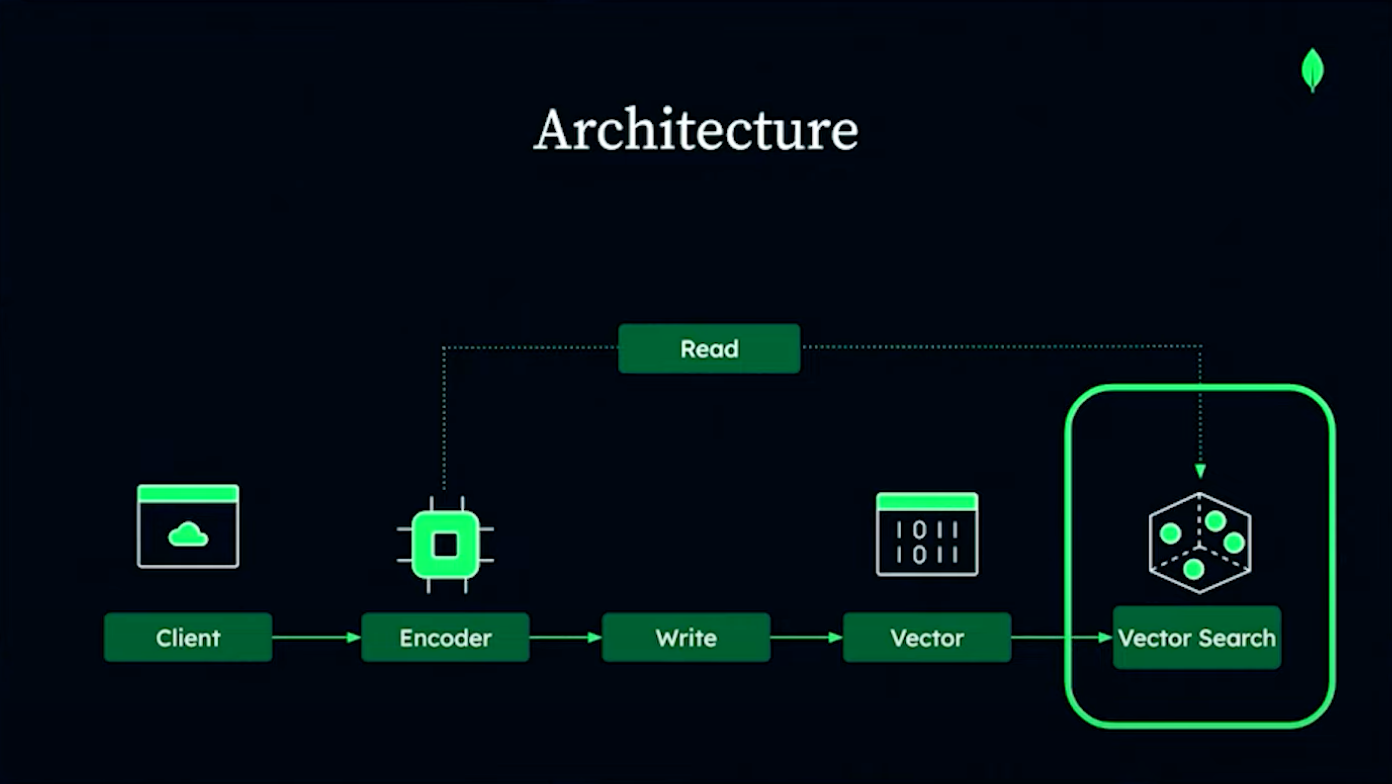
In today’s digital age, the sheer volume of data generated and stored is staggering. From social media posts to scientific research papers, the internet is a treasure trove of information. However, with this abundance of data comes the challenge of efficiently retrieving relevant information. Traditional keyword-based search engines, while effective to some extent, often struggle to deliver precise results, especially in complex and nuanced queries. Enter vector search – a cutting-edge approach that promises to revolutionize information retrieval as we know it.
Understanding Vector Search

At its core, vector search is a technique that represents data points as vectors in a multi-dimensional space. By encoding information into these vectors, complex relationships and similarities between data points can be efficiently captured and analyzed. Unlike traditional search methods that rely solely on keywords, vector search considers the semantic meaning and context of data, resulting in more accurate and relevant search results.
How Vector Search Works
Vector search leverages advanced mathematical algorithms, such as neural networks and embeddings, to map data into a high-dimensional vector space. Each data point is represented as a vector with numerous dimensions, where each dimension corresponds to a specific feature or attribute. By analyzing the geometric distance and direction between vectors, similarities and patterns within the data can be identified.
Key Components of Vector Search:
- Vectorization: Converting data into high-dimensional vectors.
- Embeddings: Mapping data points into a continuous vector space.
- Similarity Metrics: Calculating similarities between vectors using distance metrics like cosine similarity.
- Query Processing: Analyzing user queries and retrieving relevant vectors from the database.
Applications of Vector Search

Vector search has a wide range of applications across various industries and domains. Some notable applications include:
- E-commerce: Enhancing product recommendations and personalized shopping experiences.
- Information Retrieval: Improving search engines for web, document, and multimedia content.
- Recommendation Systems: Powering content recommendations for streaming platforms and social media networks.
- Natural Language Processing: Enabling semantic search and sentiment analysis in text data.
- Bioinformatics: Facilitating the analysis of genetic sequences and protein structures.
Benefits of Vector Search
The adoption of vector search offers several benefits over traditional search methods:
- Improved Relevance: By considering semantic meaning and context, vector search delivers more accurate and relevant search results.
- Scalability: Vector search algorithms are highly scalable and can handle large volumes of data with minimal computational overhead.
- Personalization: The ability to capture user preferences and behavior enables personalized recommendations and tailored search experiences.
- Efficiency: Vector search accelerates the search process by efficiently retrieving relevant information, reducing user wait times and improving productivity.
- Versatility: Vector search algorithms are adaptable to various data types and domains, making them versatile tools for information retrieval.
Vector Search in Healthcare

In the healthcare industry, vector search has the potential to streamline medical research, diagnosis, and treatment. By analyzing patient data, medical records, and scientific literature, vector search algorithms can identify relevant patterns and insights to improve healthcare outcomes. For example, researchers can use vector search to discover correlations between genetic markers and disease susceptibility, leading to more targeted therapies and interventions.
Enhancing Security with Vector Search
Vector search is also gaining traction in cybersecurity and threat intelligence. By analyzing network traffic, malware signatures, and security logs, vector search algorithms can detect anomalies and potential security threats in real-time. Moreover, the ability to quickly search and correlate vast amounts of security data enables faster incident response and threat mitigation strategies. As cyber threats continue to evolve, vector search provides a powerful tool for protecting sensitive data and infrastructure.
Education and Vector Search
In the field of education, vector search holds promise for personalized learning and educational content recommendation. By analyzing student performance data, learning materials, and instructional resources, vector search algorithms can identify personalized learning pathways and recommend relevant educational content. This approach not only enhances student engagement and comprehension but also enables educators to tailor their teaching strategies to individual student needs.
Legal Applications of Vector Search
In the legal industry, vector search is transforming case law research, contract analysis, and legal document management. By analyzing legal texts, court rulings, and precedent cases, vector search algorithms can identify relevant legal precedents, statutes, and regulations to support legal arguments and decision-making. This enables lawyers and legal professionals to conduct comprehensive legal research more efficiently and effectively, ultimately improving the quality of legal services and outcomes.
Social Impact of Vector Search

Beyond its commercial applications, vector search also has the potential to drive positive social impact in areas such as humanitarian aid, disaster response, and environmental conservation. By analyzing social media data, satellite imagery, and sensor data, vector search algorithms can identify patterns and trends to support disaster relief efforts, monitor environmental changes, and coordinate humanitarian interventions. This enables organizations and policymakers to make data-driven decisions and allocate resources more effectively, ultimately benefiting society as a whole.
Challenges and Future Directions
While vector search holds great promise, it also presents some challenges and considerations:
- Data Quality: The effectiveness of vector search relies heavily on the quality and consistency of data. Noisy or incomplete data can lead to inaccurate results.
- Algorithm Complexity: Implementing and fine-tuning vector search algorithms requires expertise in machine learning and computational mathematics.
- Interpretability: Understanding and interpreting the underlying patterns and relationships in high-dimensional vector spaces can be challenging.
- Ethical Considerations: As with any AI-driven technology, vector search raises ethical concerns related to privacy, bias, and algorithmic fairness.
Looking ahead, ongoing research and advancements in vector search are expected to address these challenges and unlock new possibilities for enhanced information retrieval.
Conclusion
In an era defined by data abundance, the need for efficient and accurate information retrieval has never been greater. Vector search represents a paradigm shift in the way we navigate and explore the data universe. By harnessing the power of high-dimensional vector spaces, this innovative approach promises to deliver more relevant, personalized, and efficient search experiences across a wide range of applications. As we continue to push the boundaries of AI and machine learning, the potential of vector search to revolutionize information retrieval is truly boundless.








